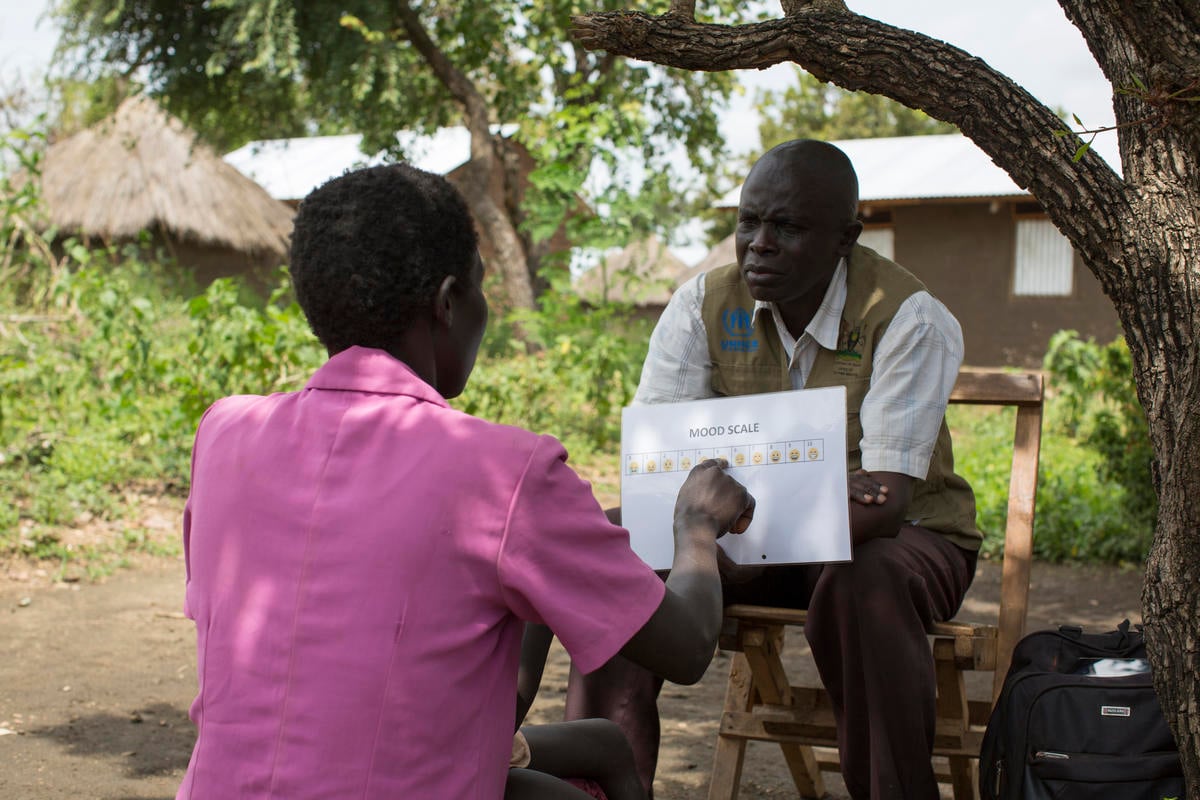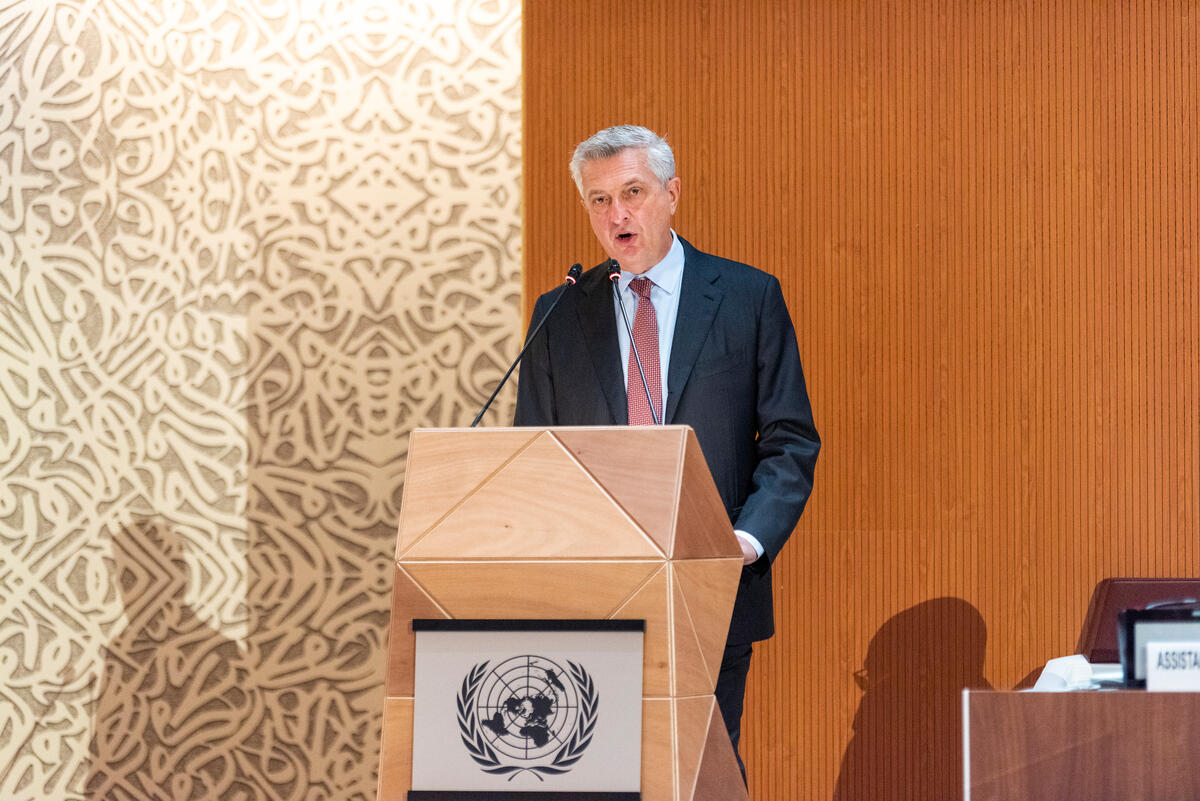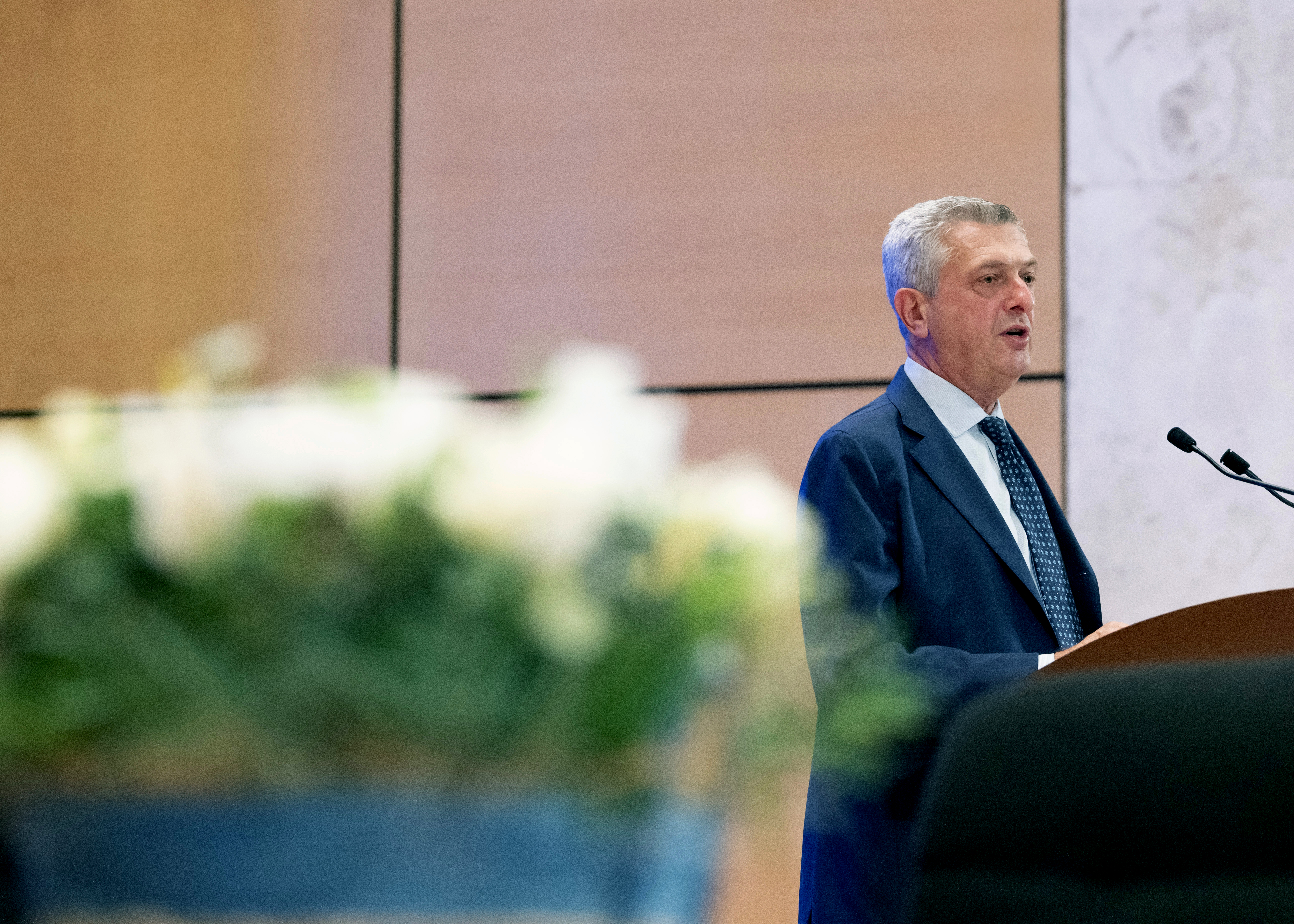Guterres opens annual meeting of UNHCR's governing Executive Committee
Guterres opens annual meeting of UNHCR's governing Executive Committee
Geneva, Monday 2 October 2006
GENEVA - UN High Commissioner for Refugees António Guterres today called for concerted international action to preserve the institution of asylum while finding better ways of dealing with irregular migration, post-conflict recovery and the plight of millions of people displaced within their own countries.
In a broad-ranging address opening the week-long annual meeting of UNHCR's governing Executive Committee, Guterres said his agency was facing a "moment of truth" as it confronted a number of internal and external challenges. First among them was redressing one of the international community's "greatest failures," the neglect of tens of millions of internally displaced people who - because they remain within the borders of their own country - lack the safeguards and assistance afforded to refugees outside their homeland.
Guterres told delegates from 70 member nations that in addition to its original mandate of protecting the world's refugees, UNHCR had now become a fully-engaged partner in a new joint approach to help the estimated 24 million internally displaced people worldwide.
"We are now part of the collective response by the UN system and the broader humanitarian community, and in that context have assumed leading responsibility for ... protection, emergency shelter and camp coordination and management," he said. "Lessons learned from ... four pilot countries - Uganda, the Democratic Republic of the Congo, Liberia and Somalia - will guide us in the future."
Guterres said the new approach had already been instrumental in the return of more than 300,000 internally displaced people (IDPs) in Uganda, "transforming a dramatic humanitarian situation into a potentially remarkable success story." He said UNHCR was also reassessing its IDP work in Colombia, Sri Lanka, the Caucasus and Côte d'Ivoire.
Despite progress in some IDP situations, however, an estimated 2 million internally displaced people in Sudan's Darfur region remained in desperate need of protection and assistance.
"Faced with a situation like Darfur, the role of organizations such as ours is severely constrained," Guterres said. "That may seem intolerable, yet our desperation is nothing next to that of the victims and millions of displaced. In the absence of a clear framework for the exercise of the so-called 'responsibility to protect,' the international community remains basically powerless. The insecurity bred in Darfur has spread to Chad and threatens the Central African Republic itself."
Reviewing progress in several areas over the past year, Guterres cited the central importance of protection and asylum in a rapidly changing world. "At a time of rising intolerance, fuelled by security concerns and confusion in public opinion between migrants and refugees, we are bound first to preserve asylum and rebuild trust in asylum systems," he said. "Critical developments are taking place - many of them deliberately encouraged by populism in both politics and the media, taking us in the wrong direction."
Preserving asylum meant opposing all forms of refoulement - or forcibly returning refugees - and ensuring respect for international refugee law, which "cannot be superseded by national legislation, extradition treaties, or redefined by bilateral arrangements."
Guterres also cited efforts with governments and other partners in addressing the protection needs of refugees among the tens of millions of migrants on the move in the world today. Focusing on regions of origin and transit and destination countries, UNHCR has proposed a 10-point plan that sets out measures which can be incorporated into migration procedures.
"We know the difference between a migrant and a refugee, and we don't want to become a migration management agency," he said. "But we are witnessing more and more movements with the character of mixed flows, where the large majority are migrants but where there are also people in need of international protection: refugees, women victims of trafficking, unaccompanied minors. Our role is to help create the environment where these people can be detected and afforded protection. They must be granted physical access to asylum procedures and a fair treatment of their claims. Measures aimed at curbing illegal migration must never call those rights into question."
Over the past year, UNHCR has helped find solutions for hundreds of thousands of refugees, mostly through voluntary repatriation once conditions are in place. But the sustainability of those returns to devastated countries emerging from conflict is a "dramatic concern," Guterres said. He cited the Democratic Republic of the Congo, South Sudan, Burundi, Afghanistan and Liberia as countries requiring sustained international assistance to ensure that those who have gone home can stay home.
"In any operation, the promotion of return comes only after minimum conditions are met and we are able to verify that people will be safe following their repatriation," he said, adding that returnees cannot live on hope alone. "Addressing transition problems after wars or conflict end and before sustained development is in place is not something at which the international community excels."
Outlining UNHCR's institutional reform efforts, Guterres said the agency has improved its emergency response capacity and is engaged in a systematic change process aimed in part at lowering fixed costs, including staff and administrative costs, to ensure that maximum resources go to beneficiaries. Possible measures include moving field support staff closer to the point of delivery and relocating some Geneva-based activities.
"We cannot forget our moral obligation to the people we care for," Guterres said, adding that UNHCR's budget of about $1 billion a year is still unable to provide enough help to refugees wanting to repatriate or to provide basic medical treatments such as the latest malaria protocol or antiretroviral medication. "We cannot accept that money that should be spent on the people we care for is spent unnecessarily on the organization," he said.
The Executive Committee reviews and approves UNHCR's programmes and budget, advises on protection issues and discusses a wide range of other topics. Guterres thanked donors for their continued support. Today's session also included remarks by Japanese optometrist Dr. Akio Kanai, who Monday evening is to receive the 2006 Nansen Refugee Award for his work in providing eye care to some 100,000 uprooted people over the past two decades.








